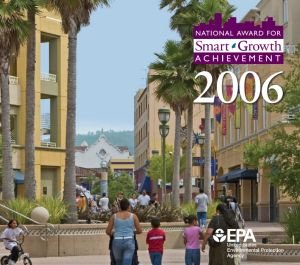2006 National Award for Smart Growth Achievement Booklet
From 2002 to 2015, EPA presented the National Award for Smart Growth Achievement to recognize and support communities that used innovative policies and strategies to strengthen their economies, provide housing and transportation choices, develop in ways that bring benefits to a wide range of residents, and protect the environment.
Awards were given in the following categories in 2006:
- Overall Excellence: Massachusetts Office for Commonwealth Development in of Massachusetts
- Built Projects: Old Town Wichita, City of Wichita in Wichita, Kansas
- Policies and Regulations: Pennsylvania Fresh Food Financing Initiative, Pennsylvania Department of Community and Economic Development in the Commonwealth of Pennsylvania
- Small Communities: Winooski Downtown Redevelopment Project, City of Winooski in Winooski, Vermont
- Equitable Development: Bethel Center, Chicago Department of Planning and Development in Chicago, Illinois
Overall Excellence in Smart Growth: Massachusetts Office for Commonwealth Development in Massachusetts
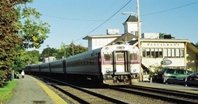
This Smart Growth Award recognized the Massachusetts Office for Commonwealth Development (OCD) for bringing together state agencies responsible for environmental, transportation, and housing policies in a single office to promote growth that meets a wide range of goals.
Through a combination of incentives and outreach, OCD changed the way both the state and localities make growth decisions. Communities like Concord (pictured right) used the Commonwealth Capital program to secure funding for mixed-use development along existing transit lines.
Built Projects: Old Town Wichita, City of Wichita in Wichita, Kansas
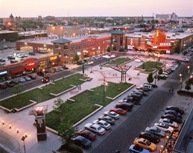
This Smart Growth Award recognized the Old Town Wichita project in Wichita, Kansas.
The city used innovative tax districts and incentives to spur the city's largest environmental cleanup effort and removed barriers that limited reinvestment in the warehouse district. Through innovative strategies, collaborative problem solving, and a vision to foster great places, the city of Wichita has created a new neighborhood near downtown. Renamed “Old Town,” the district featured a mix of housing, shopping, and entertainment options while preserving its historic feel.
For an update on this project, see the 2010 National Award for Smart Growth Achievement booklet.
Policies and Regulations: Pennsylvania Fresh Food Financing Initiative, Pennsylvania Department of Community and Economic Development in the Commonwealth of Pennsylvania

This Smart Growth Award recognized the Pennsylvania Fresh Food Financing Initiative, a public-private partnership between the state and three nonprofit organizations, which provided over $7.3 million in grants and loans to help supermarkets locate in communities without them.
The program lets people shop for nutritious food in their neighborhoods instead of having to drive to distant grocery stores and brings economic development to communities. In Philadelphia, the First Oriental Market (pictured right) received a $500,000 loan from FFFI to help its owners purchase the property they had previously leased.
For an update on this project, see the 2008 National Award for Smart Growth Achievement booklet.
Small Communities: Winooski Downtown Redevelopment Project, City of Winooski in Winooski, Vermont
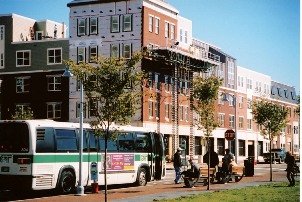
This Smart Growth Award recognized the Winooski Downtown Redevelopment Project. The Project revitalized the small town with new development that respected the city's character and history.
The town preserved or restored nearly 100 acres of natural habitat, returned vacant properties to productive use, created several neighborhood parks, and built the pedestrian-friendly RiverWalk.
For an update on this project, see the 2009 National Award for Smart Growth Achievement booklet.
Equitable Development: Bethel Center, Chicago Department of Planning and Development in Chicago, Illinois
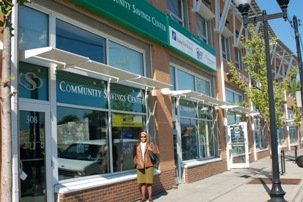
This Smart Growth Award recognized the Bethel Center project.
Threatened with the loss of its transit station, the West Garfield Park neighborhood catalyzed transit-oriented redevelopment with Bethel Center as the anchor and kept the station open. Bethel Center provided employment services, child care, and banking in a "green" building erected on a former brownfield.
The Community Savings Center (CSC) occupies one of the six storefront properties at Bethel Center (pictured right). CSC is a full-service bank that offered free financial counseling to members.

